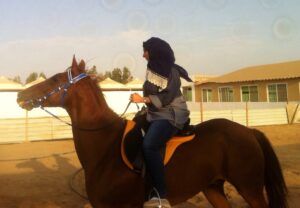
As usual, many of these topics arise in WhatsApp groups. After I commended an author of a translated article from ATD on coaching, for using the word ‘Tawjeeh’. I was struck in the group by the coaching community’s lack of depth in Arabic and Islamic literature. I decided to write this article with the humble knowledge and tools that I have. I decided English is the best way to do so, first, it can reach a wider Arab community in the world who have not been in touch with Arabic for such a long time, let alone know how to read the Quran or the Arabic literature because of their upbringing, education, or cultural context. Second, I owe it to the English-speaking professionals and the many Western coaching associations an explanation of why I am challenging the status quo. Third, because being an author in both English and Arabic languages comes with great responsibilities towards research, integrity, and authorship ethics
Here are a few agreed-upon facts before we start. Arabic is a flexible language and carries many derivatives just like any old language. English, on the other hand, is modern and derived from other languages with limited vocabulary. English can include other words easily due to its Latin origins. Arabic cannot accept Latin words without complete grammatical distortion and thus remains intact and independent in the preservation of the Quran as a miracle in language and literature. But it has the capability to create derivatives depicting a wider meaning than what the English language can.
Second, Arabic is the miracle of Islam and the prophet Mohammad ‘Sallah Allahu Aliah Wasallam’ and when words appear in the Quran, they are miraculous in how they reflect wider arrays of meanings and implications that are always valid, thus, cannot die or become outdated. If there is anything we cannot comprehend, it is because we are not capable of perceiving it fully.
For this conversation to become fruitful, one must speak Arabic and read it from its source. Not just the common day-to-day modern usage but also classical Arabic which is taught in Western Universities and spoken by many across the world in its correct form. You must also know how to understand the miracle of Islam, the Quran, which has reserved the usage of this language up to this day.
In an attempt to include non-Arabic speakers, I am writing in English which is extra difficult, but for this to reach global coaching associations it must be done in English, so I am going to try.
While ‘Tawjeeh’ (not guidance, direction, or direction setting) reflects the Quranic text ‘Wouj-hah’ which is a destination, is found in the Quran in over 75+ verses, not counting the roots and the derivations. Not in one instance of all, it is understood as ‘giving orders’ or forcing someone to a ‘direction’. Even when the prophet is asked to take the destination of Kaaba as his Kebla in one verse, the word ‘Walli’ means: ‘take action towards this destination- in a directive verb, proceeded ‘Wajhak’ or your face, which, Tawjeeh is derived from. That implies clearly that Wajhak has nothing to do with the directive verb ‘Walli’.
In the vocabulary of our current time in the Arab organizational context the role ‘Modeer’ is considered a director, but does not imply director at all. A director is purely English and has no equivalent to it in Arabic. ‘Modeer’ means the one who circles or spins things around, from ‘Da-Ira’ or a circle (which gives you that nondirective context of management), while management is more of a directive and non-human aspect in English. the Arabic ‘Modeer’ requires more of a high context approach, so you do not confront or upset the system. Using ‘Tawjeeh’ as a verb to give a directive is a modern organizational misconception. I have witnessed high-level leaders use it in a non-authoritative way to indicate moving someone without confrontation or edict. Arabs are known for their indirect nondirective approach which is called high context as they are very sensitive about others’ emotions and how they perceive them and avoid upsetting others in the process.
The word ‘Amr’ meaning order, is Directive, it is also in grammar the amr verb, which is a unique kind of verb that implies edict. That is why an Amir is called that because he gives orders. The question is why do we choose to use this negative translation for the word ‘Tawjeeh’ when it is not even an edict verb but merely a noun describing a process? One can argue that the Modeer has power and is respected. The answer is that Arab culture has high power structures even in a family. Thus misconceptions of words can be easily associated with the power structure.
It is common in Education to use ‘Mowajeh’ as a role taken by a teacher supervisor to support teachers in their performance. British English used it in the context of education and coaching teachers. Teachers are professionals who support learners in “Acquiring knowledge, developing skills, and nurturing attitudes” (KSA). The word ” Tawjeeh” is used correctly here to imply real coaching for teachers. The role is translated as ‘Mowajeh’ and is used by Arabs in the context of coaching teachers.
Supervision is translated in Arabic as ‘Moshrif’ or looking form above. Moshrif is also used for coaching supervision and implies climbing over a veranda and looking from above to see what is going on in the coaching process and supporting the coach gently in a non-directive to reflect on the process. So why is it okay to call a supervisor that way and they do not direct? Why is Tawjeeh so difficult to comprehend and use as a gentle yet nondirective and supportive way of allowing a teacher to tackle their obstacles and goals or what’s happening in the classroom with learners just like coaching supervision?
While the act of looking from above is readily presented to us in Arabic as ‘Moshrif’, the word does not imply any directive as in normal day-to-day organizational supervision, which leans more towards directives and support from higher ground. My argument is to let us walk away from what we know and be authentic and learn what we do not know. We can take a word that barely means facing a destination with your whole being and call it ‘Tawajoh’, call the person who helps you find that destination ‘Mowajeh’, and call the process ‘Tawjeeh’!
Another obstacle I need to remove is ‘guidance’ as a synonym for ‘Tawjeeh’, implied by many. Looking at our rich language and heritage, we use a specific word, and it is also mentioned in the Quran many times which is ‘Morshid’ for the role of a guide or ‘Rashaad’ for good decision or ‘Irshaad’ for the act of guidance which can also be used in the context of a mentor who is considered Morshid. Morshids are also non-directives and do this in a very gentle way, but they know the way very well to be mentors for others. The religious Morshid is who supports you in learning how to practice Islam or mentors you in how to become a Muslim. ‘Hadi’ on the other hand is from ‘Hidaya’ and it is originally from ‘Hadiya’ or gift. In the Quran it is used with Morshid but in a very subtle way as it alludes to the way of the heart and not the acts or behaviors.
Let us also agree that the English word ‘coach’ is originally derived from a pulled carriage behind a horse where people sit, then used to indicate another form of carriage, a modern one which is a very big bus that takes people places. Finally, is used for the role of supporting a team mentally and physically. Now it is used widely to indicate you as a ‘coach’, but still in the USA, you will be always told: “Oh a trainer or a sports coach, how is that working for you?”. Even here in the USA, we coaches must explain it to those confused Americans, Human Resources sometimes who don’t know what it looks like, and when we talk to clients. We are always explaining so what is wrong with doing that in the Arab organizational and Arab social context? It is part of the code of ethics and part of what we do to spread a coaching culture anyway! Is that so difficult?
So ‘coaching’ as an English term, does not have history in the sense that it was used very recently in the field of human service or support as we know it. If we establish this,, why do we insist that the whole world should follow through with it, if we ‘the English speakers admit, to the lack of root-related meaning of it in the field of humanities and social sciences, why not let others find their terms?
An argument about how we need to regulate the field of coaching can arise. Nevertheless, most coaching organizations are Non-profit. the whole coaching profession is regulated under NAICS, CAGE, and PSC codes, management consulting, human resources, and sometimes training and education. If we attempt to control other nations’ vocabulary it can have negative effects on the wider communities that we serve as coaches since it can be an infringement on the miracle of Islam, which is the Arabic Language, through the accusation of its lack of expressions and vocabulary to contain such a well-known concept practiced by the prophet in his conversations with people.
If one takes enough time to research the Hadith heritage which is the second source of Islamic jurisdiction and the way we understand contexts of verses in the Quran, one finds that the Sunna has numerous coaching situations that a whole discipline of what we call ‘Adab Al-Waaz’ is built on. Westerns not knowing about it, does not cancel the fact that it exists, and we are constantly connecting the dots to the point we even doubt that coaching is new or invented by the West in the organizational and social sciences. Any ancient civilization would argue the same, the Egyptians, Greeks, Islamic, and Confucius are just to name a few in the history of humans.
Let us now focus on the important aspect of why the word ‘Tawjeeh’ is important to the field of coaching in the context of Arabs.
I spoke of this 8 years ago and continue to do so, first, because I studied Islamic and Arabic literature. Second, I have consulted with linguistics who are coaches among us. Third the word ‘Coaching’ cannot be flexible enough to be used in the derivations of the Arabic grammar when you express verbs (edict, past, and present forms of verb exist only in Arabic Grammar), adjectives, and adverbs, nouns, and pronouns, plurals, duals feminine and Masculine, let alone the accents in the words. This pauses a great barrier to the authorship movement which is rising and continuing by Arab scholars. It is also a tongue twister for all the non-English speakers who will weirdly pronounce this as they did with imported words such as brands. I even heard people say Kitchin for Coaching.
When I started examining words, I was not looking for the closest, but rather for the most authentic meaning reflecting the idea of coaching. You can listen to a lengthy explanation in my podcast episode 53 and earlier episodes in Arabic. The verse in the Quran 148 Albaqara states:
“For everyone, there is a destination ‘Wojha’ they are perusing ‘Mowaliha’. You are asked to follow and compete towards goodness ‘fa- istabiquo Alkhyrat’. Wherever you are, Allah will bring you all back (for the day of judgment). Allah is all capable”. Tawjeeh from Tawajuh (the noun) or facing towards your destination. The destination was left up to you to choose (we only help you see it) and then ‘Tawalli’ which is perusing it (which is always a choice in the Quran). Finally, we are asked to race toward the destination of goodness which is up to us to choose but will bear the consequences of our actions as stated in other verses in the Quran. That is why one must know the other texts and contexts to understand one word. We are asked to read the Quran, learn it, and live by it. This is inseparable from who we are as a Muslim Arab nation. If one of us chooses otherwise it’s his deeds he will bear and do not affect the collective entity of the greater good ‘Khyrat’.
When we conduct Tawjeeh, we support the Mowajah in the exploration of their destination, help them see or perceive their choices, and find what suits them best. If they choose to act -‘Tawalli’- then we offer to support them in finding the steps forward. The roots are from ‘Wajh’ which is the ‘Face’ literally but also what you choose to see or face (facing your challenges or fears or destination). It is gentle, easy, and understood as supporting the other. The rest is on us to explain how it is conducted and what differentiates it from other professions, just like explaining the difference between a sports coach, coach driver, or a leadership or life coach.
Having studied and memorized the Quran all my life, I can say with confidence that ‘Tawjeeh’ depicts the idea of coaching because it starts with ‘Ta’ a prefix indicating ‘supporting’ or ‘initiating’ based on what comes next.
We Arabs, are so young in the science of coaching that we forget we carry over 1445 years of knowledge hidden in our books that were translated to English during the peak of Islamic civilization. We cannot just ask a group of coaches to rule on behalf of our Arab nation. I have ‘Tawjeeh’ in my books, articles, and coaching education and will continue to do so. I suggest it is time coaching associations and bodies respect our Arabic Islamic heritage and quit interfering with how we express ourselves in respect of our individuality. Here is a poem by Hafith Ibrahim which I like to end this article with:
أنا البحر في أحسائه الدر كامن
I am the sea with its hidden Gyms inside,
فهل سائلوا الغواص عن صدفاتي؟
Have they not asked the diver about my pearls




